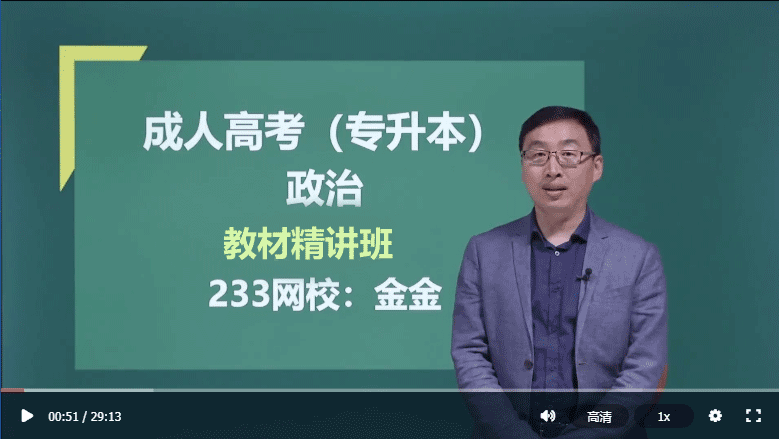Passage four
It is still sometimes difficult to understand why those between ages 10 and 18 would endanger their lives by joining armed forces or rebel groups and become fighting soldiers. The recently published book, Young Soldiers, Why They Choose to Fight by Rachel Brett and Irma Specht, tries to find an answer.
There is no doubt that children fight in most armed conflicts today. While international attention focuses largely on those who are forced into battles, thousands more enlist(应征入伍) voluntarily.
In an attempt to understand the young who take up arms, Brett and Specht interviewed 53 boy and girl soldiers and ex-soldiers from around the world, Afghanistan, Colombia, the Republic of the Congo for example. All interviewees were involved with armed groups before the age of 18 and all classified themselves as volunteers.
What these two field officers heard is “I joined involuntarily—if you have nothing, you volunteer for the army”. Other reasons young people gave are self—defense, revenge, poverty, and unemploy-ment.
But while it is common knowledge that most child soldiers come from poor and disadvantaged backgrounds, Young Soldiers shows that the issue is far more complex. Many poor child do not join the army. The environmental, educational, social, cultural, and highly personal factors determine whether someone decides to join up or not.
The battlefield is not a place children. One young soldier described being there as “too sad an experience”. The authors hope that by understanding why teenagers join up, those child soldiers should know how to discourage others from the same tragedy.
第46题单选Young Soldiers, Why They Choose to Fight is ( )
A.a book
B.a magazine
C.a news report
D.a TV program
参考答案:A
第47题单选 According to Paragraph 3, Brett and Specht’s interviewees ( )
A.join armed forces under 18
B.considered going into the army their duty
C.were only from African countries
D.were mainly the ex-soldiers
参考答案:A
第48题单选 The reasons shown in Young Soldiers for children to join the army are ( )
A.very simple
B.very complex
C.unknown
D.unbelievable
参考答案:B
第49题单选 The writers of Young Soldiers probably expect that ( )
A.child soldiers would leave armed forces
B.they could find more than 53 interviewees
C.no more children would join armed forces
D.there would be no wars in the world
参考答案:C
第50题单选 The tone of the passage is ( )
A.pleasant
B.indifferent
C.humorous
D.objective
参考答案:D
Passage five
It’s interesting that technology often works as a servant for us, yet frequently we become a servant to it. E?mail is a useful tool but many feel controlled by this new vehicle. The average businessperson is getting about 80 e?mails per day and many feel that about 80% of the messages in their “In Box” are of little or no value.
So, I have four suggestions to help you to become better at “Easing E?mail”.
1.Get off the lists. The best way to deal with a problem is to never have it. If you are receiving a lot of unwanted e?mails, ask to be removed from the various lists. This would include your inclusion in unwanted “cc” lists(抄送名单).
2.“Unlisted address”.Just like getting an “unlisted” telephone number that you share only with those whom you want to give direct access, you might want to get a separate e?mail address only for the important communications you wish to receive.
3.Check it once or twice per day.Many I speak with are becoming chained to their email server, monitoring incoming email on a continuous basis. Maybe this is because e?mail creates its own sense of urgency, but most of the communications are not all that urgent. I respond to them a couple of times per day.
4.Deal with it. As you open each e?mail do one of the following:
a.If it requires a quick response, respond to it and delete it.
b.If it requires a response but is not the best use of your time, try to find someone else to do it.
c.If it is going to take any serious amount of time to respond, schedule it for action in your Day Planner and then download the message, save it, or print it out for future action.
I personally receive approximately 250 e?mails per day and by practicing the suggestions above, I can handle that volume in about an hour, taking advantage of this fantastic tool but not being controlled by it to the distraction(分心)of more important tasks in my day.
第51题 The passage is about .
A. how to check e?mails
B. how to collect e?mails
C. how to deal with your daily e?mails
D. how to deal with 80% valueless e?mails
参考答案:C
第52题 If you get unwanted e?mails, the best you can do is to .
A. make a list of them
B. put them into “cc” lists
C. send them to a special address
D. delete them from different lists
参考答案:D
第53题 For the important communications, the writer suggests that you .
A. have a direct access for them
B. have several e?mail servers for them
C. get an unlisted phone number for them
D. get a special e?mail address for them
参考答案:D
第54题 To avoid being chained by the coming e?mails, what you can do is to .
A. respond urgent ones only
B. reply all of them at the same time
C. handle them a couple of times daily
D. keep replying e?mails all day long
参考答案:C
第55题 To deal with an e?mail you get, you can do the following EXCEPT .
A. downloading every e?mail before you reply
B. responding right away if it’s urgent
C. scheduling it for later reply if it takes much time
D. asking someone else to reply it if it’s not at your convenience
参考答案:A
2017成考:2017成人高考新手指南 成人高考报名条件 成人高考考试时间

